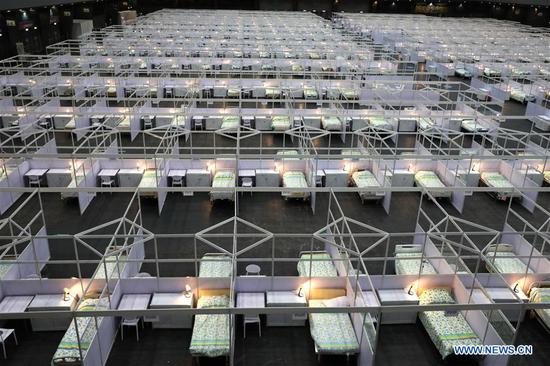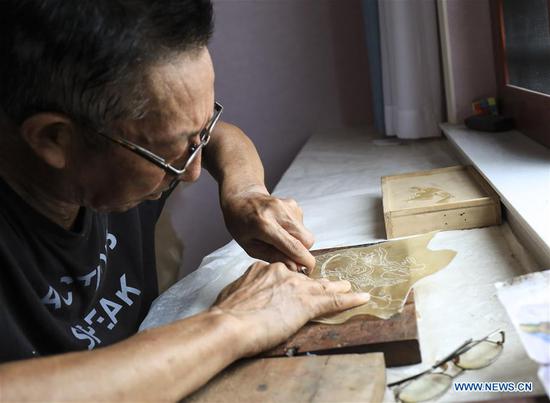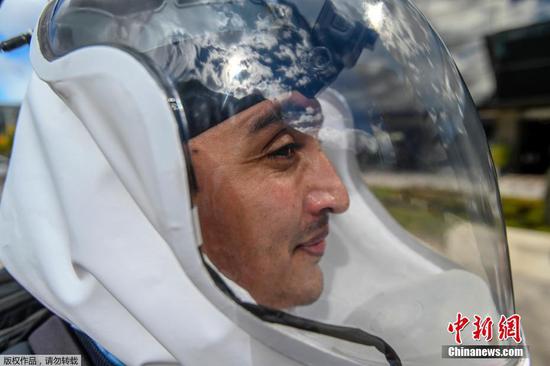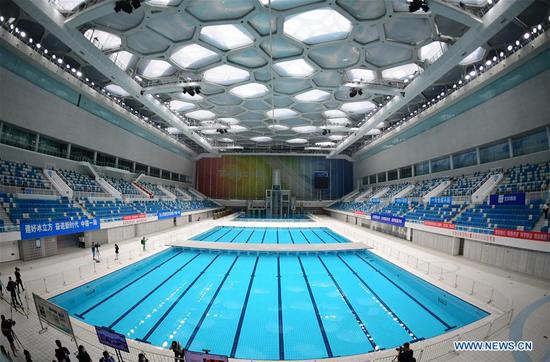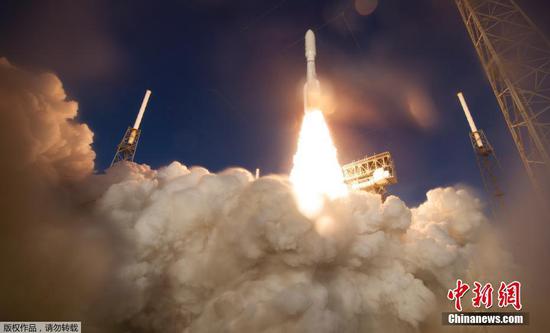Investment plan
Many analysts believe China will turn the crisis arising from the pandemic into an opportunity to redouble its efforts to become a leader in the industries of the future.
The National People's Congress, the country's top legislature, approved a plan in May to invest $1.4 trillion over the next six years in technology, ranging from 5G to artificial intelligence, with local governments set to work with the country's private high-tech giants.
With national champions such as Huawei, China is already way ahead of rivals in 5G mobile communications, an enabler of vital new technologies such as the internet of things and driverless cars.
China also wants to be a leader in the green revolution, with major investment being sunk into clean energy technology.
Many entrepreneurs at the symposium addressed by Xi were from the technology sector, and they will be at the forefront of China's efforts. The country has already set itself a deadline of becoming a global technology leader within 15 years.
Sheng believes China will seize the opportunity presented by the pandemic. He said that unlike after the global financial crisis of 2008, which saw China respond with unprecedented levels of infrastructure investment, the focus now will be on the tech sector.
"This time round, smart investing in people and software, especially green products and services that are less carbon-and resource-intensive, will pay off better than huge increases in hard infrastructure, which happened a decade ago," he said.
Koh, from the Centre for New Inclusive Asia, said China is already trying to build a new economy, and the current crisis will further act as a catalyst for change.
He believes the scale of investment in "new infrastructure" such as big data centers and 5G, new energy vehicle charging stations, high-speed railways and long-distance power transmission to bring renewable energy to cities, is ahead of anything taking place in the West.
"Such investments are in line with China's aim to transition from a polluting, export-led manufacturing economy toward one that is high-tech and service-driven. China's economic transformation ambition is well supported by its existing leading edge in 5G and other technologies," he said.
Tse, from Gao Feng Advisory, the author of China's Disruptors: How Alibaba, Xiaomi, Tencent and Other Companies are Changing the Rules of Business, said that despite the pandemic, China is entering a new era of innovation.
"China has a lead in so many of the disruptive technologies that are going to shape the industries of the future. What you have got in China is this ecosystem with national government, local government and the private sector all working together in a national technological effort. It is completely unique," he said.
"What you have also got is this entrepreneurial culture and this huge market where companies can try out new ideas. Whatever the rest of the world decides to do in terms of its relationship with China, this domestic market will accelerate innovation, and we have seen that happen already."
Some observers believe that not only the pandemic, but trade tensions with the US have also spurred China's technological effort.
The country's biggest semiconductor maker, Semiconductor Manufacturing International Corp, was floated on the Shanghai Stock Exchange on July 16, with its shares surging by 245 percent.
With Washington attempting to block Chinese technology companies from using US chips, the focus now is on producing them in China instead.
Khanna, the global strategist, said, "The US-China trade war has already served to accelerate China's efforts to upgrade its semiconductor and other industries."
He said that whatever the pressure, China has a long-term commitment to technology, and is unlikely to be diverted from this path.
"China's focus for 20 years, and each successive five-year technology plan, includes a wide swath of investment priorities, from solar power to medical devices," he said.
It is difficult to predict the winners in the post-coronavirus world, as cases continue to rise amid the prospect of second and third waves.
Sheng is among those who did not anticipate the difficulties advanced countries such as the US would experience in tackling the crisis.
Few people predicted the US would bungle its handling of the pandemic to such a degree, he said.
Sheng believes the key battleground will be in delivering green products to a consumer base with a heightened awareness of global risks such as climate change, based on the experiences learned during the pandemic.
After the pandemic, customers will want green products with a reduced carbon footprint that are less-polluting, he said.
Sheng also thinks domestic consumption will be important to China as its economy recovers.
"China has reached the Ford moment, where if you pay your people better, they will buy your own product. Domestic consumption will be the key driver of growth for China, but it has to be green."
Koh also believes domestic consumption holds the key for China's recovery.
The country's domestic consumer market is set to rise by $6 trillion from now until 2030, more than the forecast increase in both the US and the EU combined, according to McKinsey &Co, the management consultants.
"This domestic market will spur economic growth. China has only to make a strategic shift inward to mitigate the negative impact of the (coronavirus) crisis and maintain its economic growth trajectory," he said.






















